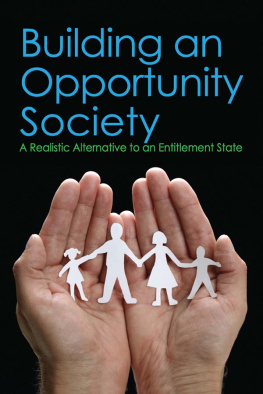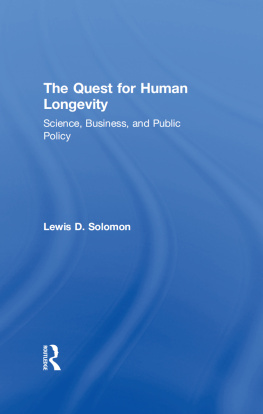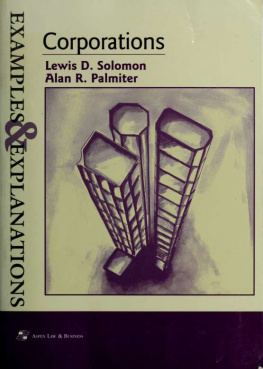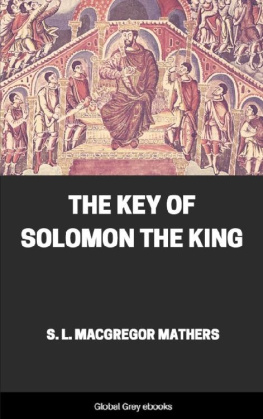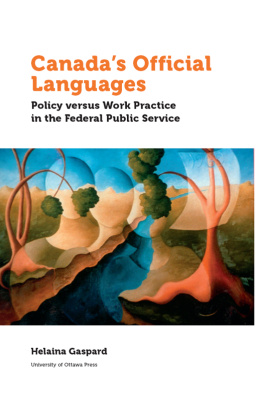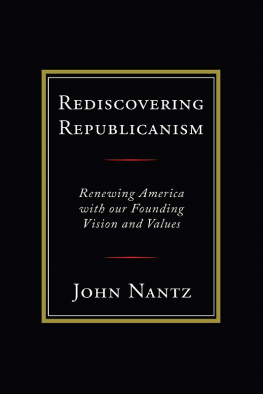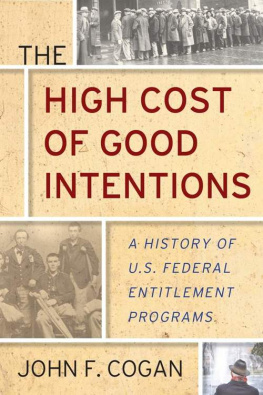In the twenty-first century, policymakers in the United States face a great challenge: how can federal government help more people achieve the American dream? Specifically, how can we provide greater opportunities for more individuals, enabling more to succeed through their hard work on their merits and have more responsibility for their lives, thereby giving more of us the best possible existence, yet helping those who do not prosper or rise?
We are a compassionate people and want our public sector to provide a safety net for those who cannot provide for themselves, whether they are too young, too old, or mentally or physically disabled, protecting them from starvation, homelessness, or abject poverty. We aspire to do something for children born with a strike or two against them, with few favorable prospects in life. We desire to provide short-term help for the unemployed as a result of economic downturns but avoid casting them into debilitating, long-term dependency on public sector programs. We hope to give those at the bottom of the socioeconomic ladder, those strivers who work at low-wage jobs but are not poverty stricken or financially comfortable, a fair chance to succeed through their talents and hard work. We want to encourage individual initiative and risk taking, but we must remember that success is not assured, and if achieved, it is not evenly distributed.
It is difficult to devise federal policies and programs that foster a path for most to economic self-sufficiency and upward mobility but offer safeguards for those truly in need. All developed nations, including the United States, face these quandaries, made more acute, now and even more so in the future, as the result of public sector deficits and ever-increasing debt burdens.
In analyzing how the federal government can create more opportunities for success, while providing a floor for the less fortunate, I approach this topic with a large measure of humility. Many have dealt with parts of the problem; this work, extensive in its scope, strives to bring together many threads and develop an encompassing policy perspective, balancing social cohesion and economic dynamism.
The Social Democratic Vision of the Entitlement State
The equalitarian ideal of social democracy seeks to provide policy prescriptions to meet personal anxieties1 and ameliorate Americas allegedly harsh capitalist system. Money occupies a central place in social democrats thinking about societal problems and remedies. Fairness and social justice, it is said, requires first, the redistribution of income and wealth from the successful to the public sector through ever-higher taxes; and second, a greater equalization of outcomes through massive public sector expenditures, particularly entitlement benefits for both the poor and, increasingly, the middle class, thereby temporarily alleviating the symptoms of individual troubles and societal problems, while providing a greater measure of economic security.2 It offers a vision of a more static, less dynamic society, defined mainly by material needs, with public sector funds and institutions, in the form of the entitlement state, substituting for the traditional two-parent, intact family structure and mediating civic institutions, such as religious organizations.
The social democratic approach often rules out (or at least mini-mizes) the role played by innate ability, skills, characterambition, initiative, daring, and hard workin producing unequal outcomes. Despite differences in cognitive abilities, psychological profiles, and noncognitive behaviors through ever-expanding federal programs, the social democratic vision strives to achieve more similar outcomes, particularly financial, for more people in their lives. Yet significant limits exist to federal interventions designed to engineer greater fairness and equality of outcomes. Because people differ in their abilities, skills, and motivation, among other factors, a considerable degree of inequality likely is unavoidable. While increasing the entitlement benefits provided by the public sector is, of course, compassionate in the short term, the long-term costs may cause more, not less, harm. Public sector entitlement programs may devalue the ethic of earned success; lead to indolence; encourage resentment, not gratitude; and further disassemble the traditional family structure among a significant portion of society. Even apart from its fiscal costs, now and in the future, we must be vigilant with respect to the consequences of public sector assistancemorally, psychologically, and socially. We need to be concerned about the adverse consequences of public sector programs, particularly the creation of more individuals and families increasingly dependent on entitlements, thereby curtailing their incentives for self-improvement and the achievement of economic self-sufficiency.
The Naysayers
In contrast to social democrats with their utopian aspirations, some take a negative view of all public sector programs. They perceive these programs as having no impact on the intended recipients or producing unintended negative consequences.
In analyzing what the federal government can do to help those less fortunate, not only the poor but also lower middle-class Americans, who face adverse cultural and social conditions, not merely economic ones, the naysayers point to Professor Peter Rossis metallic laws.3 The iron law of evaluation formulates that the expected value of any net impact assessment on any large-scale social program is zero.
In contemplating the iron law of evaluation, I must admit that I am at least skeptical, if not antagonistic, to the social democratic vision, focused on the redistribution of income and wealth through large-scale federal programs designed to solve social problems. Over the decades, the federal government has spent trillions of dollars on poorly structured, largely ineffective domestic social programs. Although clear, identifiable federally funded interventions do not abound to solve social problems, exceptions exist.

